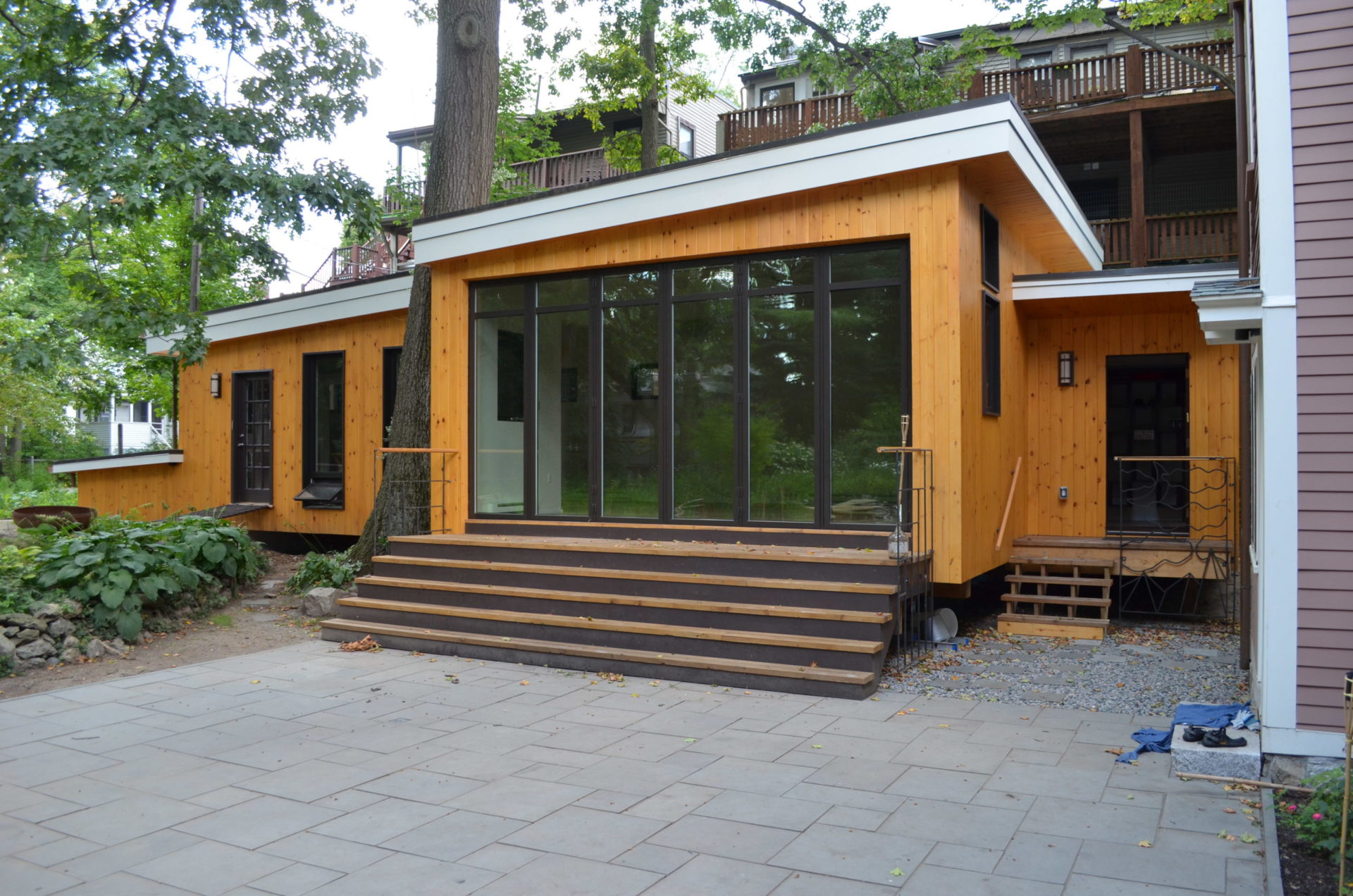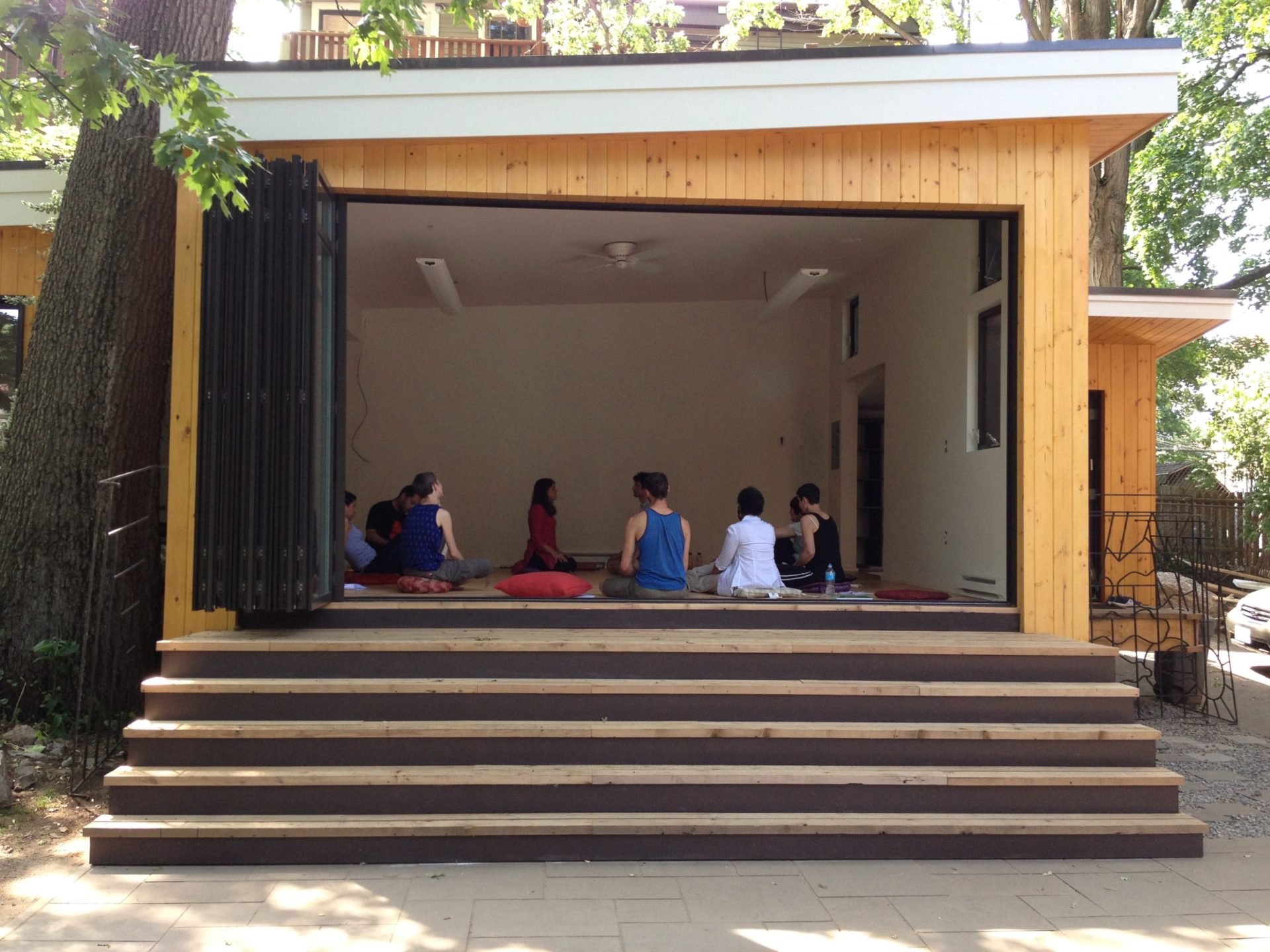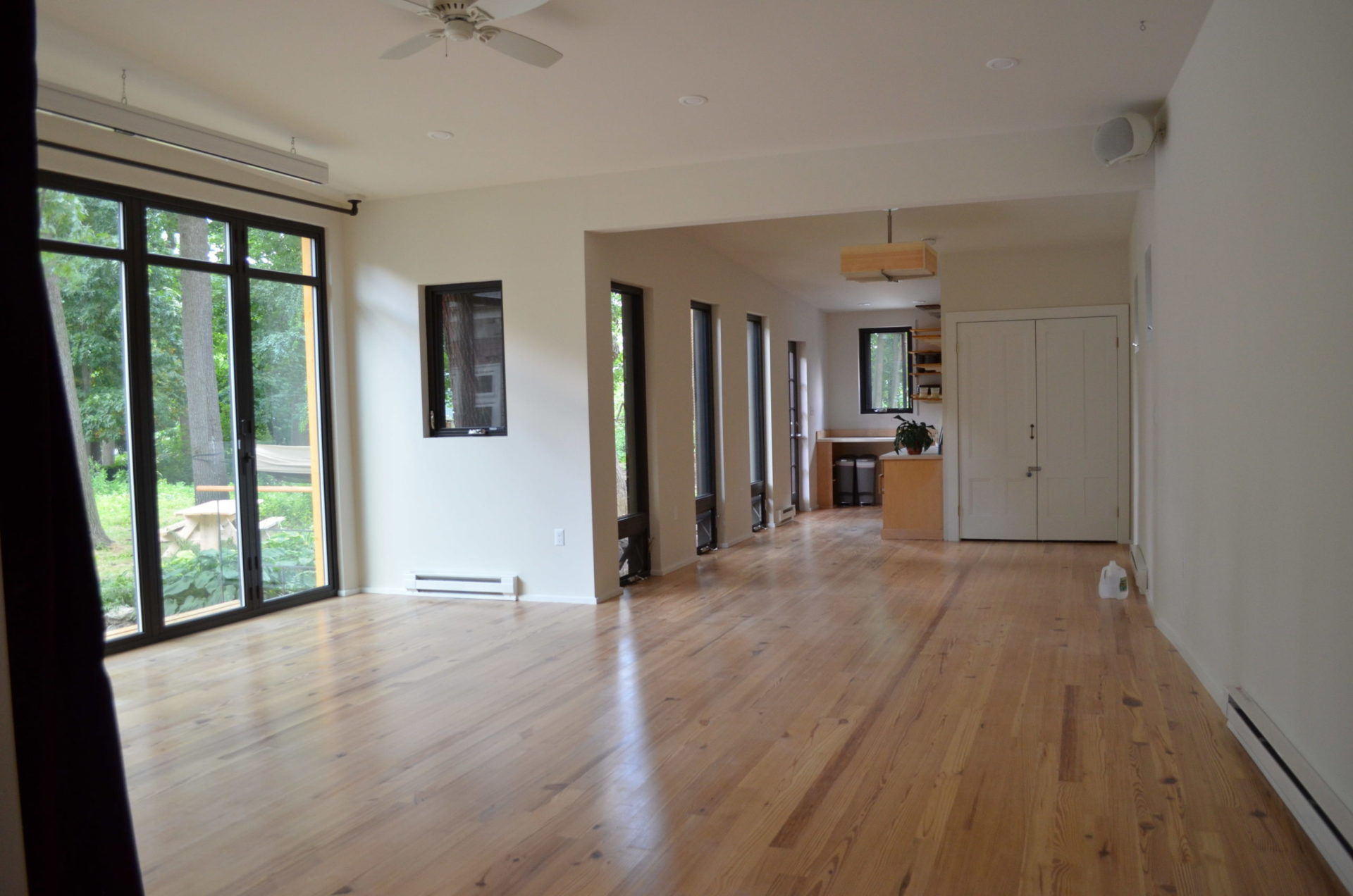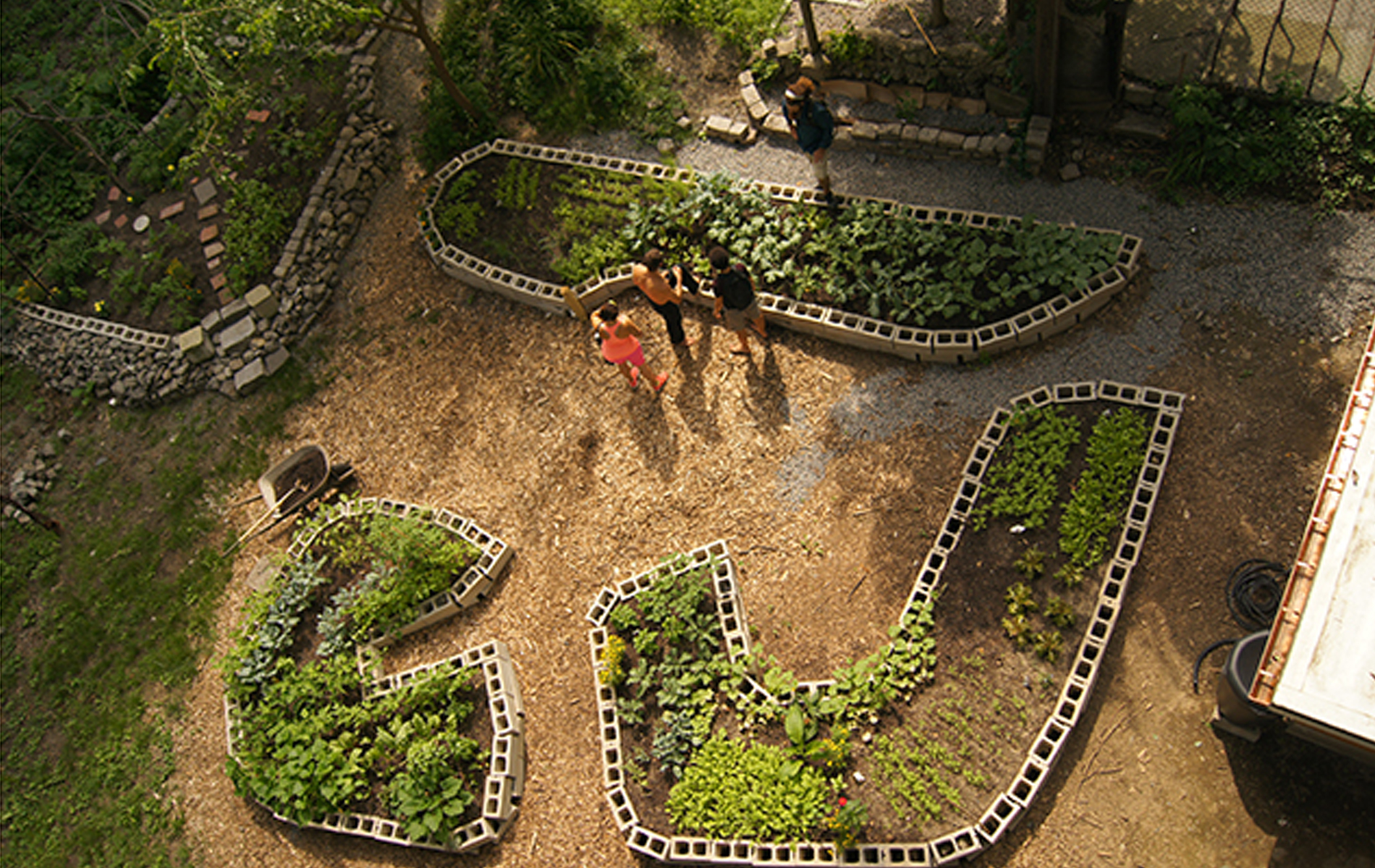The Old Oak Dojo was recently awarded Full Living Building Certification, being the 9th in the world, and the 1st in Boston, MA. This is the most rigorous environmental building including Zero Energy & Water management, Urban Agriculture and intensive exclusion of toxicity in materials. The program requirements resulted in extensive use of reclaimed materials from an original shed, a large stage set (Grown-Ups II) and an array of salvage and re-purposed materials with only mechanical equipment and windows being purchased new, but from regional sources. For a full understanding of the requirements of the Living Building Challenge (LBC) please go the case study on the ILFI (International Living Futures Institute) website at LBC Case Study.
The Old Oak Dojo Community Space building, is built integral to a multi-family residence. It resides on a wooded lot in a dense urban neighborhood of Boston. The multipurpose community space is available for educational gatherings, workshops, Yoga/Martial arts, and performances, and serves as a community space where neighbors can congregate to create healthy and resilient communities. The building was built around, and to preserve a 170-year-old oak tree. The intimate dance between the Old Oak and the Dojo lends gravity to the space, and gives the Dojo its name, suggesting an ongoing dialogue between the built and natural worlds.
Early on, discussions between Next Phase Studios and the owner (an Environmental author) on how the project could be regenerative in its environmental impact, instead of consumptive led to the pursuit of the world’s most rigorous and ambitious performance building standard, the Living Building Challenge. The LBC is composed of seven performance groupings called Petals: Place, Water, Energy, Health & Happiness, Materials, Equity and Beauty. The main intent of the Certification is to have the facility be low impact or even restorative of the environment, meaning supplying all energy on site and with NO combustion, treating all on-site waste (compost toilet/greywater systems), and using only low toxicity and regional materials (a major feat in a global construction supply chain).
Food is a catalyst for bridging differences, elevating social equity, and bringing people together to create healthy and resilient communities. Urban Agriculture is a required aspect of the LBC and at the Old Oak Dojo. The owner and community were faced with two big challenges: contaminated soil and limited sunshine. They partnered with two local permaculture gardeners to design beds that would best address the challenge of limited sunshine due to tree cover. Raised beds were constructed using cinder blocks (left over from Dojo construction) and reinforced with scrap iron (left behind on the old shed). Three of the beds are cultivated by Dojo members; the fourth was offered to neighbors as a community plot. They primarily focused on crops that can tolerate cooler temperatures and shade, such as kale, chard, mustard greens, lettuces, scallions, carrots, radishes, and herbs. The beds with the highest sun exposure have tomatoes, melons, cucumbers, and peppers. Reused rainwater is stored in cisterns and used for irrigation.



